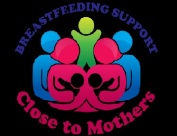Prenatal Genetic Testing
Hi all! My name is Katherine Brown and I am the summer intern here NHSA. I have an interest in the genetic field, specifically with the prenatal aspect and advocating for prenatal screening/testing, which all relate to what we promote and advocate here at NHSA.
Most of the projects being implemented at NHSA revolve around building educational skills to be healthy before pregnancy, during pregnancy, and in between pregnancies. These interventions are vital considering the U.S. statistics on infant mortality rates are nothing to brag about. In fact, according to Save the Children’s State of the World’s Mothers report, every year twice the numbers of babies die on their first day alive than all 27 European Union nation combined. And get this: 1 million more babies are born there compared to the U.S! This is why NHSA supports the Federal Healthy Start Initiative and developed Celebrate day 366…Every Baby Deserves a Chance, and why prenatal screenings/testing need to be promoted to increase the chance of celebrating Day 366!
Genomic medicine has grown tremendously within the last couples of years. Prenatal testing can detect your baby’s health and growth before it is even born. Prenatal testing also tests how the mother is during throughout pregnancy. It is a win-win situation for both! We now have tests, mentioned in the March of Dimes article posted below, that can tell early within your pregnancy (within the first trimester) if your child may have any genetic conditions like Down syndrome, heart defects, birth defects, or cystic fibrosis. It is extremely important to continue prenatal testing throughout the pregnancy to understand how you and the baby are growing. For example sometimes mothers will acquire gestational diabetes during second trimester and prenatal screening can detect that. During your third trimester most screenings will test for group B strep that a mother can acquire and then pass down to her baby. It is also important to know your own family history of disease or what your specific ethnicity may be more prone to, i.e. cystic fibrosis or sickle cell anemia, before planning to have a child. Make a list of all cancers, genetic disorders, mental illnesses, etc. shown to have affected your family tree and take it to a genetic counselor that will take time to talk with you and discuss options for conceiving the healthiest child possible.
The importance of having all of these factors detected before giving birth is that prevention or treatment can start immediately which means a longer and better quality of life for your child.
If you would like more information on genetic counseling or prenatal testing, please check out the links below.
